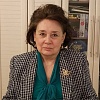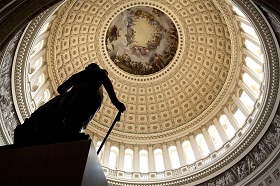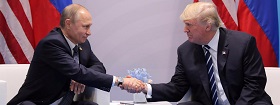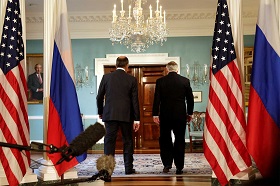On July 18 the White House announced that a 57-year-old American politician, diplomat, and businessman, Jon Meade Huntsman, Jr. was to be the new Ambassador of the U.S. to Russia. Huntsman, being a member of ruling political elite in the U.S., will become D. Trump’s trusted envoy with direct access to the President of the USA. This could have been the defining point in D. Trump’s decision to nominate Huntsman for the position of the U.S. Ambassador to Moscow.
Huntsman’s appointment signifies Russia and Russian policies being placed at the forefront in the system of U.S. foreign policy decision-making. D. Trump’s administration office has to admit «by default» that the administration must acknowledge that a rise in multipolarity will in turn allow Russia to advance its interests as a key player.
On Huntsman’s arrival to the Russian capital Russia-the U.S. relations will be built within Moscow—Washington—Beijing triangle. The key strategic position of Washington — to prevent Russia-China strategic partnership formation —directly depends on the way the unprecedented pressure of Washington and its allies towards Moscow might influence Russia-China rapprochement.
On July 18 the White House announced that a 57-year-old American politician, diplomat, and businessman, Jon Meade Huntsman, Jr. was to be the new Ambassador of the U.S. to Russia. J. Huntsman is the U.S. political «heavyweight», and his being nominated for the new diplomatic position in the U.S. Senate will not create any problems, except perhaps with the messages from senators with anti-Russian sentiment, who make up the majority, to take a tough and a more aggressive stand in the relations with Moscow. The White House nomination lists all major accomplishments and achievements of Huntsman, who currently serves as Chairman of both the Atlantic Council, a premier foreign policy think tank, and the Huntsman Cancer Foundation. It is noted that «his robust record of public service includes service as U.S. Ambassador to China and to Singapore, Deputy United States Trade Representative, Deputy Assistant Secretary of Commerce for East Asian and Pacific Affairs, and Deputy Assistant Secretary of Commerce for Trade Development. He was also twice elected Governor of Utah. In the private sector he is a director of numerous corporate boards including Hilton, Chevron, Ford Motor Company, and Caterpillar. He and his wife Mary Kaye are the parents of seven children».
Nevertheless, it seems that one key point is missing in this list, namely Huntsman's private income worth about USD 1 billion. This is the reason why billionaire Huntsman along with multi-billionaire R. Tillerson was considered by D. Trump as a possible U.S. Secretary of State at the end of 2016. In this respect, J. Huntsman has not so much relevance to the U.S. diplomatic service as to the shadow Cabinet of D. Trump administration office, a pool of 15 most successful (and hence, most wealthy) American businessmen and financiers, created by D. Trump in the form of President’s Strategic and Policy Forum [1].
Interesting Historical Parallels
Among the seven American Ambassadors accredited in Moscow since early 1990’s, from T. Pickering to J. Tefft, Huntsman is most likely to occupy a special place. All of them, except Prof. M. McFaul, who held the post from 2012 to 2014, were professional diplomats, representing traditional models of diplomatic relations. Huntsman in absolutely all his traits and significance reminds of A. Harriman, the trusted envoy of T. Roosevelt, who served as Ambassador of the U.S. to Moscow in the critical historical period of 1943–1946. Millionaire Harriman also had three hypostases, being a businessman, a diplomat, and a politician. He was Chairman and a Board member of many American companies mainly in railroad business, a Chairman of Business Advisory Council in 1937–1939 at the Ministry of U.S. Trade, which in fact means he was close to President T. Roosevelt’s administration office. In 1954–1958 — Governor, State of New York, he also participated in presidential race as a Democratic nomination for U.S. President twice in 1952 and in 1956 without success. In the post WWII period he held different diplomatic positions, including the U.S. Under Secretary of State in 1961–1965.
Given that the current hysteria in the U.S. is centered on D.Trump and his family members’ connections with Russia and Russian representatives, one can assume, that Huntsman, being a member of ruling political elite in the U.S., will become D. Trump’s trusted envoy with direct access to the President of the USA. This could have been the defining point in D.Trump’s decision to nominate Huntsman for the position of the U.S. Ambassador to Moscow.
Moreover, the Ambassador is a figure directly or indirectly indicating the importance of the country of his/her post in the U.S. foreign policy priorities. It is evident that Huntsman’s appointment signifies Russia and Russian policies being placed at the forefront in the system of U.S. foreign policy decision-making. D. Trump’s administration office has to admit «by default» that the administration must acknowledge that a rise in multipolarity will in turn allow Russia to advance its interests as a key player. The implications of this order cannot be ignored by the United States.
Still there are more parallels to A. Harriman and the period of mid 1940’s. USSR—U.S. relations in that period were built on a trilateral basis — within the Moscow —Washington — London triangle. In 1943 it became clear that WWII was coming to an end and post-war order issue is becoming crucially important. The appointment of Huntsman, who used to be Ambassador of the U.S. to Singapore in 1992–1993 and to China in 2009-2011, might be interpreted as follows: on Huntsman’s arrival to the Russian capital Russia-the U.S. relations will be built within Moscow—Washington—Beijing triangle.
The key strategic position of Washington — to prevent Russia-China strategic partnership formation — directly depends on the way the unprecedented pressure of Washington and its allies towards Moscow might influence Russia-China rapprochement. With growing anxiety American experts note that «the economic downturn and concomitant structural shift in China’s economy has already begun affecting its foreign policy. Security, not economics, is becoming one of and China’s top strategic priorities».
At the same time the Atlantic Council experts underscore that both Russia and China are searching for and manage to find more points of contact and common interests in the national security sphere. M. Gebhardt, Atlantic Council expert, directly points out the idea that «SCO is primarily a security-focused organization in which Russia and China have ostensibly equal standing. China and Russia both see the presence of American military forces in Central Asia as a security challenge» [2].
Under these circumstances loosening U.S. sanctions against Russia might be a «carrot» that the U.S. is going to propose to Russia in order to compensate for decreasing trade and economic relations with China. In any case, it is of great significance that Atlantic Council experts have reached consensus to reconsider the format of sanctions against Russia to avoid a number of potential unintended consequences for American companies and for the U.S. foreign policy.
A Pragmatic Politician
Huntsman’s numerous talents and experience inevitably lead experts to wonder how he will distinguish himself in this post as the U.S. Ambassador to Moscow. His political biography shows that he belongs to a number of pragmatic politicians, who change their political views and positions depending on the ongoing political situation. Some time ago American political analysts characterized him as a «conservative technocrat-optimist who was willing to work substantively with President Barack Obama». The opportunism of the positions taken by Huntsman could be observed in the course of the presidential campaign in 2016. In spring 2016 he supported D.Trump, a Republican nomination for U.S. President, while in autumn, after another scandal over D.Trump’s offensive comments towards women, he withdrew his «blessings».
Such political variability of Huntsman applies even to his religious beliefs. In May 2011 he gave the following explanation on his Mormon Church membership: «Today, there are 13 million Mormons. It's a very diverse and heterogeneous cross-section of people. And you're going to find a lot of different attitudes and a lot of different opinions in that 13 million. I was raised by a Mormon, my wife is a member of Episcopal Church, and our children are Catholics».
Therefore, there is every reason to believe that Huntsman will consistently follow the foreign policy line towards Russia shaped in the doctrinal foreign policy documents of the White House, the National Security Council, and the U.S. Department of State.
1. More details about «President’s Strategic and Policy Forum» in «Who is Who in Trump’s Team?» by N.Zlobin, Moscow, «Э» Publishing House, 2017, p. 270-301.
2. Atlantic Council. Future Europe Initiative. Gebhardt M. Journey to the West. Chinese Opportunities in European Infrastructure Expansion. Issue Brief. July 2017. p. 4.







